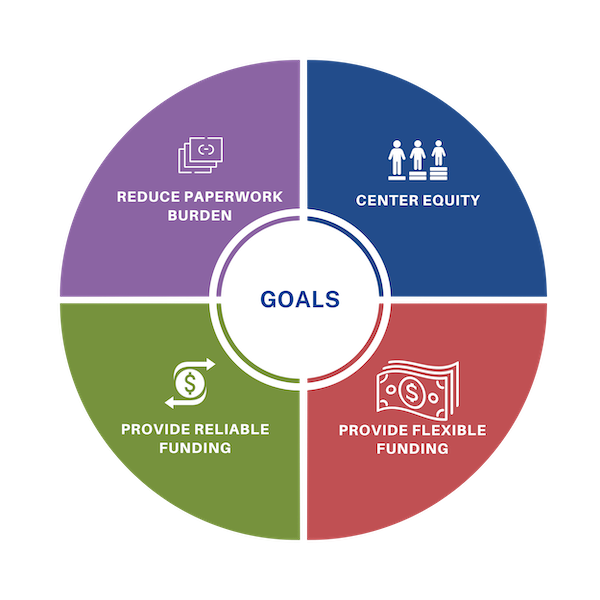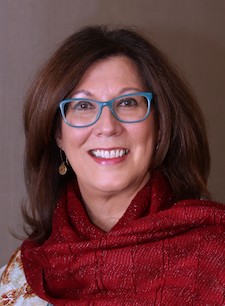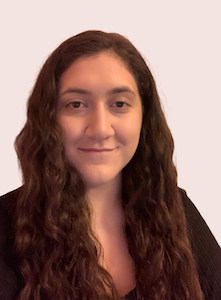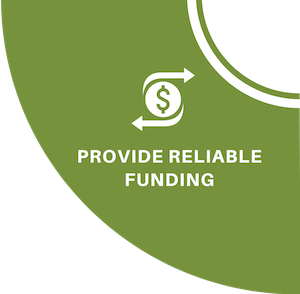Site Search
- resource provided by the Forum Network Knowledgebase.
Search Tip: Search with " " to find exact matches.
CNJG’s listserves facilitate ongoing group e-mail discussions among subscribed members. Members can share information and expertise, ask questions, and gather opinions of colleagues across the network. Listserves also enable members to get the most up-to-date information on related programs being offered throughout the field.
These listserves can be a great resource if members participate on a regular basis. You can use the listserves to:
- Pose a question to the group.
- Discuss and brainstorm issues related to New Jersey grantmaking.
- Request assistance on a specific topic, problem or issue.
- Alert members about time-sensitive or other helpful information.
Members are automatically included in relevant listserves based on their member profiles. You can begin using the listserves to communicate with your colleagues as soon as you’d like. Please refer to the Listserves’ Membership Policies page for access to the direct email address of each listserve, information on using the listserves, and the directories of who is subscribed to each list.
CNJG now offers 25 listserves.
- Bergen Funders
- Camden Funders
- Community Foundation CEO’s (this list connects to a national listserve for Community Foundation CEO’s)
- CNJG Member CEO's
- CNJG Member CFO’s and Finance Managers
- CNJG Member Communications Staff
- COVID-19 Funders
- Culture Funders
- Corporate Funders
- Disaster Response Funders
- Education Funders
- Emerging Leaders in Philanthropy
- Environmental Funders
- Family Funders
- Food Funders
- Health Funders
- Monmouth & Ocean Roundtable of Funders
- Newark Funders
- New Jersey Census Funders
- Paterson Funders
- Racial Equity Funders
- South Jersey Funders
- STEAM Funders
- Strong and Thriving NJ Community Funders
- Trenton Area Funders
If you would like to join, opt out, have questions, comments or concerns about the listserve, please contact Craig Weinrich at (609) 414-7110 x802.
Join your fellow CNJG members and CNJG staff, every first Friday of the month, for a 60-minute Zoom session. Much like the New Jersey Center for Nonprofits’ Member Mondays or “open office hours,” these sessions are a dedicated time for members to gather online to network, ask questions of each other or the CNJG staff on topics that could address:
- The latest issues facing New Jersey philanthropic organizations, resources and calls to action.
- How to use Trust-Based Philanthropy practices at your philanthropy.
- How can funders “Do Good Better?”
- Sincere discussions, sharing your questions, challenges, and success stories with your philanthropic colleagues.
- Opportunities for collaboration, programs you are offering for grantees, RFP announcements, and more.
Current members (grantmaking and associate) are invited to participate. No registration is required.
There won’t be an agenda, and we will not record the session, but we will take attendance.
To Join:
Use this link
or use
Zoom Meeting ID: 879 8405 2351
Passcode: 663599
Meeting Norms:
To make the experience comfortable and worthwhile to all, we respectfully ask the following.
- Please try to be on camera as much as possible.
- Please keep the conversation respectful and nonpartisan.
- While everyone is welcome to share resources during the session and to include helpful information in the chat, we ask that there be no direct soliciting for new clients/customers.
- Please allow everyone the opportunity to participate.
- Feel free to continue discussions offline with anyone that shares their contact information with you. Contact information for our members can be found through our online member directory.
Join your fellow CNJG members and CNJG staff, every first Friday of the month, for a 60-minute Zoom session. Much like the New Jersey Center for Nonprofits’ Member Mondays or “open office hours,” these sessions are a dedicated time for members to gather online to network, ask questions of each other or the CNJG staff on topics that could address:
- The latest issues facing New Jersey philanthropic organizations, resources and calls to action.
- How to use Trust-Based Philanthropy practices at your philanthropy.
- How can funders “Do Good Better?”
- Sincere discussions, sharing your questions, challenges, and success stories with your philanthropic colleagues.
- Opportunities for collaboration, programs you are offering for grantees, RFP announcements, and more.
Current members (grantmaking and associate) are invited to participate. No registration is required.
There won’t be an agenda, and we will not record the session, but we will take attendance.
To Join:
Use this link
or use
Zoom Meeting ID: 879 8405 2351
Passcode: 663599
Meeting Norms:
To make the experience comfortable and worthwhile to all, we respectfully ask the following.
- Please try to be on camera as much as possible.
- Please keep the conversation respectful and nonpartisan.
- While everyone is welcome to share resources during the session and to include helpful information in the chat, we ask that there be no direct soliciting for new clients/customers.
- Please allow everyone the opportunity to participate.
- Feel free to continue discussions offline with anyone that shares their contact information with you. Contact information for our members can be found through our online member directory.
Join your fellow CNJG members and CNJG staff, every first Friday of the month, for a 60-minute Zoom session. Much like the New Jersey Center for Nonprofits’ Member Mondays or “open office hours,” these sessions are a dedicated time for members to gather online to network, ask questions of each other or the CNJG staff on topics that could address:
- The latest issues facing New Jersey philanthropic organizations, resources and calls to action.
- How to use Trust-Based Philanthropy practices at your philanthropy.
- How can funders “Do Good Better?”
- Sincere discussions, sharing your questions, challenges, and success stories with your philanthropic colleagues.
- Opportunities for collaboration, programs you are offering for grantees, RFP announcements, and more.
Current members (grantmaking and associate) are invited to participate. No registration is required.
There won’t be an agenda, and we will not record the session, but we will take attendance.
To Join:
Use this link
or use
Zoom Meeting ID: 879 8405 2351
Passcode: 663599
Meeting Norms:
To make the experience comfortable and worthwhile to all, we respectfully ask the following.
- Please try to be on camera as much as possible.
- Please keep the conversation respectful and nonpartisan.
- While everyone is welcome to share resources during the session and to include helpful information in the chat, we ask that there be no direct soliciting for new clients/customers.
- Please allow everyone the opportunity to participate.
- Feel free to continue discussions offline with anyone that shares their contact information with you. Contact information for our members can be found through our online member directory.

Deepening Philanthropic and Nonprofit Partnerships in New Jersey
Doing Good Better, a partnership of the Council for New Jersey Grantmakers and the New Jersey Center for Nonprofits, is a community of funders and nonprofits taking action against the power imbalances and racial inequities in philanthropy, nonprofits and government. Accessible, equitable, and mutually accountable relationships are primary and indisputable building blocks for a stronger society and thriving communities. Our goal is to shift the culture of the New Jersey philanthropic and nonprofit ecosystem by encouraging funders, nonprofits, and government to create shared power rooted in collaboration, mutual trust, and respect.
Doing Good Better Goals: A Framework for Change
The Doing Good Better Steering Committee encourages funders to focus on and advocate for four changes that can make an immediate difference in addressing power dynamics between nonprofits and funders and maximizing nonprofit impact.
Why now?
For many years, but particularly in the context of the COVID-19 pandemic, natural disasters, and the heightened outcry for racial equity and social justice, funders have been urged to embrace more flexibility and transparency in their grantmaking. Practices such as general operating support, simplified application and reporting procedures, multi-year funding and others have been shown to level the power imbalance, advance greater equity, strengthen partnerships between funders and their nonprofit partners, and thereby improve community impact.
Many grantmakers temporarily embraced flexible practices in the wake of Superstorm Sandy and during the height of the pandemic, and these structural changes empowered nonprofits to become more resilient and have a greater impact in their communities. But while some funders have retained the flexible practices, others have reinstated previous restrictions.
In New Jersey and across the country, there is a renewed urgency to NOT return to business as usual. It’s long past time.
Doing Good Better invites all of us to reflect on how power is distributed in our partnerships, learn from our peers, and make adjustments that position all community partners for transformative, equitable change in New Jersey.
How?
Guided and informed by 50+ advisors from New Jersey who represent a broad range of perspectives from nonprofits, philanthropy, and beyond, we are approaching this work through the lens of systems change – the recognition that transformative change can only occur after power structures have been addressed collectively. Specifically, Doing Good Better encourages funders to consider the power dynamics that underpin their policies, practices, and resource flows. To do this, we provide resources and a space for dialogue centered on changes in key practices and culture shifts.
Quick practice changes you can make now.
The road to systems change begins with changing practices that impede nonprofits’ pursuit of their missions, and implement practices that demonstrate respect for and trust in the expertise and experience of nonprofits and the communities they serve. Several key practices have consistently been shown to be particularly effective. Many of these have been requested by nonprofits for quite some time, and are reflected in the principles of Trust-Based Philanthropy and Community-Centric Fundraising, among others. Here are a few practice changes you can make now:
Type of Funding
● Give multiyear and unrestricted funding, especially for grantee partners with which you’ve had long term relationships.
Access to Funding
● Create alternative processes for organizations too small to submit audits to reduce barriers to obtaining grants.
● Set aside funding pools for BIPOC-led organizations that may not have access to traditional funding sources.
Simplifying the Process
● Simplify and streamline application and reporting processes.
● Eliminate annual requests for organizational information that does not change from year to year.
Learning
● Engage with the community through participatory grantmaking that aligns with the community’s goals.
● Open dialogues with nonprofits by soliciting and acting on feedback
How do we know?
We’ve asked the experts: nonprofits, foundations, and community members who are working directly in our community as well as peers from across the country who are eliminating power imbalances in their own communities.
● Feedback from over 50+ Advisors
● The Council of New Jersey Grantmakers survey
● The Center for New Jersey Nonprofit’s survey
● The Trust Based Philanthropy Project
● The Community-Centric Fundraising movement
● Thought leaders and advocates throughout the nonprofit community
● Case studies from across the US
Theresa Jacks, President and CEO
Contact Theresa E. Jacks / (609) 414-7110 x805
Theresa Jacks joined the Council of New Jersey Grantmakers in 2008. A creative, versatile leader with over 25 years’ experience in government, nonprofit, and philanthropic sectors, she was appointed President and CEO in December 2022.As President and CEO, and previously Deputy Director and Manager of Advancement & Special Initiatives at the Council of New Jersey Grantmakers, Theresa has been instrumental in strengthening CNJG's leadership work, leading policy and advocacy efforts, building relationships with partners, developing and increasing funding to support operations and special projects, providing learning opportunities, and enhancing capacity and management processes. She has a deep knowledge of best practices in grantmaking.
Prior to joining the Council, Theresa served as Executive Director of the Whitesbog Preservation Trust, a nonprofit organization dedicated to restoring a 19th century historic village. Leading the operations of both the Trust and the ongoing restoration of the historic village included working closely with the Board of Trustees, effectively guiding board and committee initiatives, developing and coordinating educational and recreational programs, fundraising, member relations, ensuring long-term strategic and day-to-day management and administration of the organization, and building partnerships with the community.
Prior to launching a career in the nonprofit sector, Theresa worked in New Jersey state government for nearly twenty years in varying levels of management and leadership.
Theresa graduated from Central Michigan University with a Master of Science in Administration, and Rowan University with a Bachelor of Arts in Psychology. She graduated summa cum laude from both.
Kevin Callaghan, Newark Philanthropic Liaison
Contact Kevin Callaghan / (609) 414-7110 x804
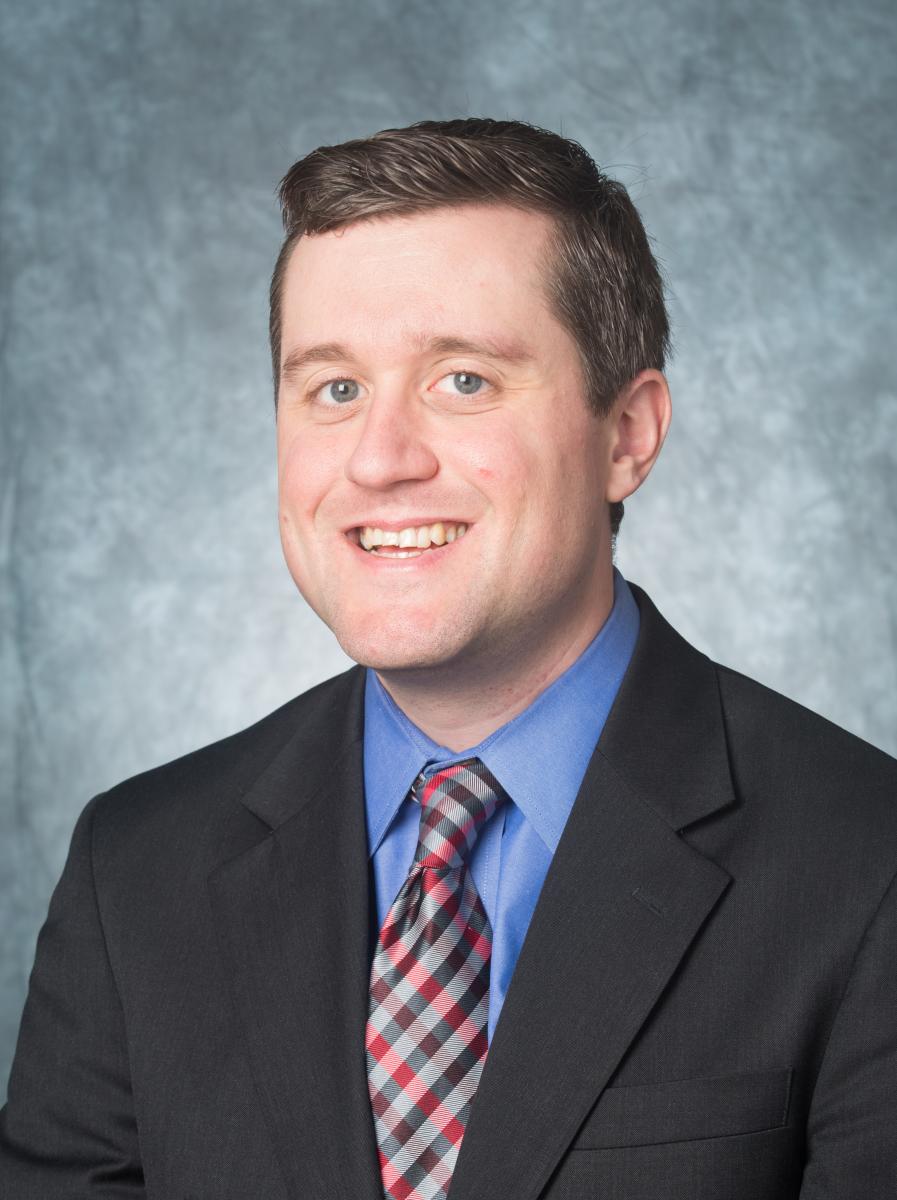
The Office of the Newark Philanthropic Liaison is an innovative collaboration between the Council of New Jersey Grantmakers and the City of Newark. Kevin began serving as the Newark Philanthropic Liaison on September 1, 2016.
In the role of Newark Philanthropic Liaison, a cabinet-level position, Kevin works directly with the Mayor and his senior cabinet to leverage private and government assets to support the Administration’s agenda in areas such as public safety, summer youth employment, workforce development, economic development, health and wellness, education and literacy, arts and culture, and neighborhood and place-based initiatives. The Office of the Newark Philanthropic Liaison also convenes and connects Newark and regional funding partners, Newark community-based organizations, and other key stakeholders by providing thought leadership, facilitating content and affinity groups, and raising awareness about critical issues facing the city.
Immediately prior to serving as the Newark Philanthropic Liaison, Callaghan was a Project Lead on the City’s Summer Youth Employment Program where he worked to implement system and program enhancements to one of the Mayor’s signature programs. Before this short-term appointment, he served for nearly five years as the Program Officer at the Foundation for Newark’s Future (FNF), the local arm of national philanthropic funding donated to the City of Newark to improve education opportunities for youth. Prior to joining the Foundation for Newark’s Future, Kevin worked for the federal government as a Special Assistant at the Overseas Private Investment Corporation in Washington D.C. and was a classroom teacher of middle school Social Studies in Philadelphia.
Callaghan holds a Bachelor’s Degree in Political Science and History from St. Peter’s University in Jersey City and a Master’s Degree in Urban Education from the University of Pennsylvania. Born and raised in New Jersey, Kevin is a proud resident of Newark.
Fortunata Cuomo, Development Associate
Contact Fortunata Cuomo / (609) 414-7110 x807
Fortunata Cuomo joined the Council of New Jersey Grantmakers in November 2024. A dedicated professional with a strong background in development, fundraising, and advocacy. Her education and previous work experiences have empowered her and allowed her to realize her passion for philanthropy.
She graduated from Fairleigh Dickinson University in Teaneck, New Jersey, in 2020, where she majored in History and minored in Global and Cultural Studies. During her time at university, she gained practical experience through internships at international organizations such as UNICEF USA and the United Nations Office for Partnerships. These early experiences helped shape her passion for justice and equality.
After completing her degree, Fortunata transitioned into the nonprofit sector, where she has been deeply involved in initiatives focused on empowerment, justice, and advocacy. She has worked with various organizations that aim to create positive change, providing strategic support and operational expertise to projects that empower communities.
Currently, Fortunata serves as the Development Associate at the Council of New Jersey Grantmakers, where she plays a pivotal role in supporting the organization’s partnership-building efforts and fundraising initiatives. She collaborates with stakeholders and partners to actualize common objectives and goals.
Outside of her professional life, Fortunata is an avid reader, traveler, and writer. Her love of learning extends beyond the workplace, as she seeks to broaden her perspective through literature and exploring new cultures.
Shakirat Odunsi, Manager of Communications
Contact Shakirat Odunsi / (609) 414-7110 x806
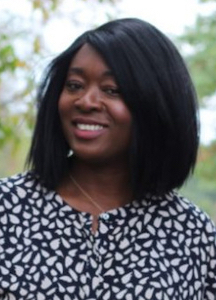
Shakirat Odunsi  joined the Council of New Jersey Grantmakers in February 2024 as the Manager of Communications. With over 20 years of B2B and B2C marketing experience, Shakirat will lead all aspects of the organization's digital communications strategy. She will promote the CNJG brand, its events, programs, and campaigns through innovative digital platforms and interactive communications. Shakirat will oversee CNJG's online presence, manage its website and social media channels, and lead the marketing efforts for CNJG's diverse services and offerings.
joined the Council of New Jersey Grantmakers in February 2024 as the Manager of Communications. With over 20 years of B2B and B2C marketing experience, Shakirat will lead all aspects of the organization's digital communications strategy. She will promote the CNJG brand, its events, programs, and campaigns through innovative digital platforms and interactive communications. Shakirat will oversee CNJG's online presence, manage its website and social media channels, and lead the marketing efforts for CNJG's diverse services and offerings.
Shakirat has a wealth of experience in the marketing and communications field, having worked on successful client-based projects in the past. She has collaborated with major brands, further enriching her marketing and strategic planning expertise. Shakirat's exposure to diverse industries and high-profile collaborations has honed her ability to navigate complex marketing landscapes and foster partnerships that drive success. She is excited to use her extensive background in marketing and communications to make a meaningful impact in the philanthropic sector. Shakirat has a track record of creative campaign execution and team leadership. She is deeply committed to volunteerism and is eager to apply her skills to promoting social good and community development.
Shakirat holds a Bachelor of Science degree from Rutgers, The State University of New Jersey.
Dana Schwartz, Office Manager
Contact Dana Schwartz / (609) 414-7110 x801
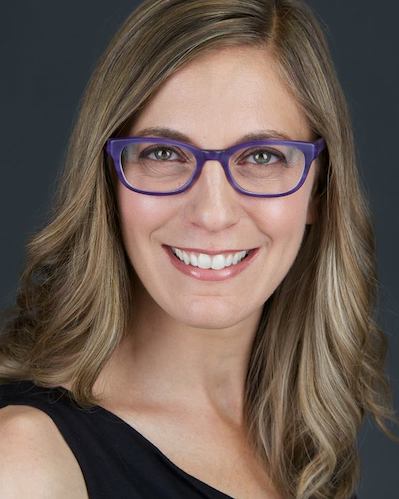
Dana Schwartz joined the Council of New Jersey Grantmakers in 2022. As office manager, her role is assisting the CEO with day-to-day operations, and attending to the needs of the CNJG Team, members, nonprofit partners, and others. She will also assist with program coordination and logistics, including for Signature events.
A lifelong reader and writer, Dana always knew she’d be an English major, and for several years after graduating college worked in the book publishing industry in Manhattan. Not long after receiving her Master’s in Creative Writing from Fairleigh Dickinson University, Dana spent the next decade at home raising her two children, and reading to them as often as they’d allow.
Since moving to New Hope, Pennsylvania in 2014, she has worked in education both as a volunteer and professional. First as a Girl Scout leader, and more recently as an instructional assistant in a multiple disabilities classroom. She is currently fulfilling her second term as School Board Director for her local district, New Hope-Solebury. She is excited to be working in the nonprofit sector in New Jersey, the state where she was born and raised.
Chanika Svetvilas, Manager of Programs and Learning
Contact Chanika Svetvilas / (609) 414-7110 x803
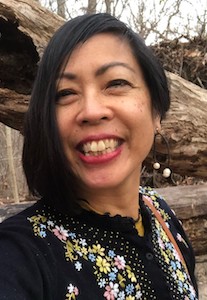
Chanika Svetvilas  ( [Chu-nē-kgha Swet-vē-las] (she/her/hers) joined the Council of New Jersey Grantmakers in 2023. As Manager of Programs and Learning, she organizes and manages programming for membership including signature events, affinity group gatherings, and educational programs that provide professional skill-building, issue-based knowledge development, as well as opportunities for networking.
( [Chu-nē-kgha Swet-vē-las] (she/her/hers) joined the Council of New Jersey Grantmakers in 2023. As Manager of Programs and Learning, she organizes and manages programming for membership including signature events, affinity group gatherings, and educational programs that provide professional skill-building, issue-based knowledge development, as well as opportunities for networking.
Prior to CNJG, Chanika worked in the nonprofit sector as a program coordinator for community based organizations as well as larger institutions and in higher education. She served as the Conference Manager for the International Sculpture Center, Program Coordinator for for the Charles B. Wang Center at Stony Brook University, and Grants Assistant for the Arts for the Doris Duke Charitable Foundation. Additionally, she has served as a grant panelist for several art councils including the New York State Council on the Arts. She was the co-founder of ThaiLinks, a collective dedicated to issues affecting Thai communities and co-founder of the Thai Takes film festival, its signature program presented in New York City.
Chanika is a practicing artist and curator. She holds a BS in Studio Art from Skidmore College, and an MFA in Interdisciplinary Arts from Goddard College. Chanika currently resides in Princeton Junction, NJ.
Craig Weinrich, Senior Director, Member Experience
Contact Craig Weinrich / (609) 414-7110 x802
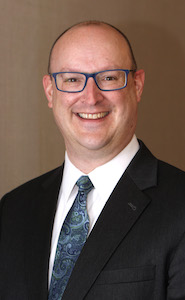
Craig Weinrich  joined the Council of New Jersey Grantmakers in 2014, as the Director of Member Services. Promoted to Senior Director, Member Experience in 2025, Craig oversees the recruitment and engagement with members, including communications and programs. During his tenure, Craig has also been CNJG’s Salesforce administrator, curated communications, developed and ran programs, researched, redesigned, and wrote the Philanthropy Benefits and Salary Survey, and maintained our website with our webmaster.
joined the Council of New Jersey Grantmakers in 2014, as the Director of Member Services. Promoted to Senior Director, Member Experience in 2025, Craig oversees the recruitment and engagement with members, including communications and programs. During his tenure, Craig has also been CNJG’s Salesforce administrator, curated communications, developed and ran programs, researched, redesigned, and wrote the Philanthropy Benefits and Salary Survey, and maintained our website with our webmaster.
Craig discovered the nonprofit sector through an intense desire to avoid working in the dining hall at Dickinson College by interning with the Eaken Piano Trio, where he learned about the world of arts administration. From there, he served as Development Directors for the Delaware Symphony (promoted from Development Assistant) and Springfield (MA) Symphony Orchestras, where he could even be found clad in the costume of their newly-created penguin mascot! Craig then moved to Nonprofit New York, a membership association of nonprofits in the New York City area, serving as their Membership, Outreach and IT Director for nine years. While there, he earned a nonprofit management certificate from Baruch College through the United Way Nonprofit Leadership Institute. Prior to joining CNJG, Craig served as the Membership Director for Maryland Nonprofits. At each organization, Craig has served as the “accidental techie.”
Craig is happy to be back in New Jersey for the third time. He grew up in Madison, lived in Bloomfield while working in NYC, and now resides in Hamilton. He served twice on church council at Living Waters Lutheran Church in Ringoes; graduated from Lead NJ in 2015 (go Green!); and in July 2018, married Kacy O’Brien. In 2022, he was appointed to serve on the Governor’s Council on Volunteerism and Community Service. In his spare time, he enjoys reading, playing board games, and hiking with Kacy and their dog, Clyde.
ADJUNCT STAFF
Mary Trimbach, Webmaster
Mary Trimbach joined CNJG as their Webmaster & Communications consultant in 2012, bringing 35 years of experience in the technology field to the position. In addition to managing the website and proving support to their communications work, Mary serves as liaison for CNJG to the Forum’s Knowledge Management Group.
Prior to joining CNJG, Mary worked in multiple sectors including non-profit, business and education providing her with a broad base of organizational knowledge. Her experience in the technology field ranges from programming, p.c. repair and support, and network management to her real love of system implementation and user training. In her career she has led in the start-up and support of several state and nationwide technology groups.
Mary holds a Bachelor’s degree in Information Technology from Aquinas College. A Michigan native, Mary and her husband recently had the opportunity to spend 2 years living their dream and taking telecommuting to a new level, working from their motorhome as they traveled the United States. Now settled back down in Michigan to be near their daughters, sons-in-law and three grandsons, they continue their travels as often as they can sneak away!
Alexis Bivens, Vice President of Strategic Initiatives and Managing Director of the Supporting Organizing Work Funders Collaborative, Connecticut Council on Philanthropy, presents the process and progress of how an affinity group transformed into a funders collaborative, how it was resourced, and challenges along the way.
Join this virtual session introducing systems thinking principles and their vital role in driving meaningful change. Whether you're a seasoned professional or new to the field, this session will equip you with the knowledge to unlock transformative solutions for your organization and community.
The webinar will explore—and show participants how to apply—a systems change framework that adapts and expands the approach forged by New Jersey grantmaker, The Nicholson Foundation. This approach embodied collaboration with government, foundations, and community nonprofits to promote sustainable change in New Jersey. State leaders in government, nonprofits, and philanthropy will reflect on how they use systems thinking principles in New Jersey and their crucial role in getting to outcomes in health and early childhood education using community-based approaches. In addition to a deep dive on systems change in New Jersey, participants will gain insights from foundation leaders in Texas who are transforming complex systems, including education and behavioral health.
Key Takeaways
· Understand the Systems Change Framework: Analyze the systems affecting your work.
· Practical Tools: Acquire actionable insights to implement complex change.
· Interactive Learning: Engage in discussions, expert presentations, and real-world reflections.
Moderator and Panelists Focused on New Jersey
Kimberly Boller, PhD, former Executive Director of The Nicholson Foundation and CNJG Board member
Denise Anderson, PhD, Inaugural Executive Director of The Center for Health Equity & Wellbeing, New Jersey's Public Health Institute; and former Managing Director for the Office of Primary Care and Rural Health at the New Jersey Department of Health
Wendy McWeeney, MPA, Co-Director, Community Health Acceleration Partnership
Atiya Weiss, MPH, Executive Director of the Burke Foundation and former CNJG Board member
The Nicholson Foundation is sponsoring the webinar in partnership with the Center for Nonprofits & Philanthropy at Texas A&M University’s Bush School of Government and Public Service.
Cost: $99. Please register by May 12.
Contact Kimberly Boller with questions and requests for group pricing.
A CNJG member queried the Health & Aging listserves asking for sample letters of inquiry. This document includes a few responses from fellow members. If you would like to add yours to this list, please email us.
Strategic asset allocation is arguably one of the most important, yet least advanced, aspects of investing. The Investment Strategy Group (ISG) in the Goldman Sachs Investment Management Division has developed a new approach to strategic asset allocation, which leverages the idea that long-term investment returns derive from multiple distinct sources called “return-generating factors.” This multi-factor approach is designed to help investors better understand the key sources of long-term return across asset classes and to increase the precision of long-term risk and return estimates. It also provides investors with a new way to think about portfolio diversification, allowing them to focus not only on diversification across asset classes but also
on diversification across the underlying sources of return.
Join your peers to learn more about the Disability & Philanthropy Forum and the Disability Inclusion Pledge in a session facilitated by Sarah Napoli, Learning Services Director for the Forum. Current signatories will share their progress as pledge signatories and how the Disability & Philanthropy Forum can support your journey to implement accessibility in your work. This is a great opportunity to come with questions if you are interested in becoming a pledge signatory or are a current pledge member. This will also offer some informal learning on disability fundamentals and allow space for Q&A.
This session is a part of our Grantmaker Toolkit Series in collaboration with The Council of New Jersey Grantmakers, New York Funders Alliance, Florida Philanthropic Network, Wisconsin Philanthropy Network, Maryland Philanthropy Network, Philanthropy West Virginia, Grantmakers of Western Pennsylvania, Philanthropy Network of Greater Philadelphia, and the North Carolina Network of Grantmakers.
The Disability & Philanthropy Forum mobilizes philanthropy to dismantle ableism by increasing funding for disability inclusion, rights, and justice; amplifying the leadership of disabled people in the philanthropic sector; and educating philanthropy to build a culture of inclusion.
Speaker: Sarah Napoli is the learning services director at the Disability and Philanthropy Forum. From 2019-2023, she acted as the lead disability inclusion project officer within the people and culture Diversity, Inclusion, and Equity team at Open Society Foundations (OSF), where she developed and facilitated disability inclusion learning and embedded proactive disability inclusive practices throughout the global network. In addition to OSF, she has over 20 years of experience teaching and conducting training on social justice and advocacy in higher education and nonprofits, most recently as the director for the inaugural Center for Inclusion at Manhattanville College and as the assistant head of Goodricke College at the University of York, England. She specializes in facilitating engaging workshops and designing curriculum that challenge and encourage participants to foster a culture of inclusion.
She holds two MA degrees, one in social justice in intercultural relations from the SIT graduate institute and one in applied human rights from the University of York. She identifies as a proud disabled person and enjoys chatting about Geek culture—all things fantasy and sci/fi and her former life as a hip hop researcher and dancer. Her research on how hip hop creates human rights identities was recently published in the University of Michigan press text, For the Culture: Hip Hop and the Fight for Social Justice.
She has conducted workshops and training all over the USA and in the world, including Japan, Guatemala, throughout Europe, South Africa, and Canada. Click here to read Sarah’s story, “The Disabled Mindset: Embracing My Disability Identity.”
Cost: Free for CNJG Members; $50 for Non Member Grantmakers
Multi-year Grants
Affirmation: Multi-year funds provided both reliability and breathing room for nonprofits.
Making fundamental and long-lasting change comes with the promise of reliable investments. Longer grant terms create an environment where collaborative partnerships can flourish, and trust and transparency break down power dynamics. The result is that nonprofits have the “breathing room” and financial stability to focus activities where they are most needed.
Although many funders award grants to the same nonprofits year after year, they often require submission of annual applications that request information they already have and are complex and needlessly lengthy. These processes can heighten mutual distrust. From a practical standpoint, multi-year awards reduce paperwork for both funder and nonprofit and open communication channels promoting shared goals, mutual trust, and increased overall impact.
Activities
• For funders that historically award repeat annual grants to the same nonprofit partners, shift from an annual grant/proposal cycle to a long-term, multi-year commitment with an annual outcomes/progress report in lieu of a full application.
• Tailor grant terms to suit grantee timelines and needs (negotiated outcomes and milestones).
• If data collection is required solely to meet a funder’s compliance requirements, the funder should assume this responsibility or provide sufficient funding and/or capacity for the nonprofit to meet the requirement.
Short-term Outcomes
• The number of funders making multi-year grants increases by 50% over the previous years.
Long-term Outcomes
• More funders convert an annual application process for repeat grantee partners to a multi-year commitment with an annual outcomes report at the most, instead of full proposals each year.
• Funders assume responsibility for data collection or provide sufficient funding and/or capacity for the nonprofit to meet the requirement.
• Grant terms are suited to grantee timelines and needs (negotiated outcomes and milestones).
How to Begin Doing Good Better on Reliability
Learning opportunities
• What barriers keep funders from making long-term commitments to repeat grantee partners? Are any of these barriers legal?
• What are the minimum data requirements for funders to collect from repeat grantee partners?
Pre-Work
• Address the barriers to awarding multi-year grants through tested tools.
• Learn about how multi-year grants strengthen grantee partners and improve philanthropic, nonprofit, and community impact.
• Research mechanisms funders can use to meet legal compliance requirements while gaining trust in their grantee partners.
Foundations are systems. They have their own cultures and related assumptions, norms, standards, and practices. All of these personal, social, and structural factors affect our ability to learn.
This tool is to help foundations take stock of their learning needs and opportunities with a dispassionate (evaluative) look at themselves as systems and how people work within them.
The tool is based on the work of systems theorist Donella Meadows. Her work resonates because it recognizes both systemic constraints and possible leverage points for addressing them. Meadows identifies a series of leverage points for changing a system, ordered from least to most powerful. We adapted her work to show how each lever can reinforce learning in an organization or system.
Use the tool to examine the list of 12 leverage points, ordered in terms of their power for shifting a system to support learning, from weakest (1) to strongest (12). Higher leverage points produce stronger, broader, more durable change.
According to Meadows, we often are disappointed in the results of systems change efforts because we tend to tweak the least powerful levers in the system — such as skill building or the flow of resources or information. We find this can be true with learning in philanthropy, where many foundations support learning with tools and training alone.
Which leverage points are you currently using to support learning in philanthropy? Where else can you push to make that support stronger?
We are pleased to share Strengthening Philanthropy in Newark - Report to the Field 2015 from the Office of the Newark Philanthropic Liaison. First established in 2007, the Liaison office represents one of the nation’s first formal partnerships between a city and the philanthropic community. The initiative began as a partnership between the Council of New Jersey Grantmakers in collaboration with then Mayor Cory A. Booker. We are proud this unique partnership continues with Mayor Ras Baraka and his new administration.
This report provides a brief summary of some of the substantial activities and impact the Office of the Newark Philanthropic Liaison facilitated throughout 2015. The strategy of collective impact is thriving throughout Newark thanks in large part to the work of the Liaison, and the funding community’s support of and robust engagement with the Office of the Mayor and anchor institutions across the city continue to reap positive outcomes. The Office of the Newark Philanthropic Liaison is supported by: Bank of America, The Foundation for Newark’s Future, Geraldine R. Dodge Foundation, The MCJ Amelior Foundation, The Nicholson Foundation, Panasonic Corporation of North America, The Prudential Foundation, Schumann Foundation for New Jersey, Turrell Fund, Victoria Foundation, and PSEG Foundation providing in-kind support and meeting space.
Newark is one step closer to its highly anticipated Guaranteed Income Pilot Program following the release of a report by the city, the Jain Family Institute and the Economic Security Project outlining findings and recommendations that would put more cash into residents’ hands.
Mayor Ras Baraka first broached the idea of a universal basic income pilot program at a 2019 State of the City address, saying it would be a welcome experiment in Newark, where more than a third of residents live below the poverty line. Universal basic income is a government benefit that aims to reduce income inequality through direct cash infusion.
More than a year later, the report completed by the city’s special task force is positioning Newark to join a national body of research on guaranteed income. The pilot program would focus specifically on residents struggling with housing insecurity, according to the city.
“What we really want to do is add to the national body of research and put Newark on a national stage,” said Kevin Callaghan, Newark’s philanthropic liaison. “This is Mayor Baraka entering a conversation and saying this is something that we support, and the top recommendation of the report is that there should be a federal guaranteed income policy.”
With the support of JFI and ESP, two internationally recognized research groups, Newark will begin to cast a line to national foundations and donors to fund the pilot. The report estimates anywhere between $4.5 million to $12 million based on three studies, but Callghan put the sweet spot around $5 million for meaningful results.
Estimates say that a Newark family would need $63,000 a year to meet its basic needs, according to United Way of Greater Newark.
More than 20 years ago, the Garden State’s philanthropic community began meeting informally to discuss issues of importance to grantmakers. In the late 1980s, fueled by the observation that philanthropy is more effective when grantmakers have a forum to communicate, exchange information, and take part in continuing education, CNJG was born.
By 1998, CNJG was an independent 501(c)(3) organization with a full-time executive director and approximately 80 members. In the years since, membership has grown to include more than 130 foundations, corporate giving programs, government and other public grantmaking organizations. Informal gatherings of likeminded individuals and organizations have been replaced by robust, highly valued seminars, convenings, workshops and conferences.
Extending Philanthropy's Contribution
Over the years, CNJG also actively engaged in a number of landmark initiatives including commissioning the first study of giving in the Garden State, NJ Gives, the first study of nonprofit health insurance provider conversions to for profit corporations, New Jersey Together (a major funder collaborative centered on youth development), a landmark effort looking at the systemic, long term fiscal challenges facing all levels of government in New Jersey entitled Facing Our Future, the creation of the Community Foundation of South Jersey, and creation of the Newark Philanthropic Liaison position within our state’s largest city administration.
View our CNJG Through the Years pictorial.
CNJG’s Finance and Investment Affinity Group exists to keep foundation executives informed as they manage the investment of their corpus. Growth of foundation assets and the active exchange of sound investment strategies is the focus of each program.
We are pleased to welcome Ethan Harris, head of Global Economics Research at Bank of America Global Research to lead our breakfast that kicks off the new year with a Market Outlook for 2023. Mr. Harris will give us his insights on:
- Inflation
- Potential for continued interest rate hikes and where might they pause
- Labor market impact on the Fed’s direction
- Impact of Fed moves
- Expectations for US economy and other economies around the world
- Growth and recession risks, and
- Some discussion of the big global issues
Agenda
8:30 a.m. - Breakfast
9:00 a.m. - Program begins
10:00 a.m. - Meeting concludes
Cost: $35 for CNJG Members; $70 for Non Member Grantmakers (includes full breakfast)
COVID-19 Safety and Information
CNJG will follow all health and safety guidelines and recommendations outlined in our COVID-19 Liability Waiver for in-person programs and events.
Please do not attend the program if you are ill, exposed to the COVID-19 virus within 14 days prior to the program, or exhibit any symptoms of the COVID-19 virus prior to the program.
These are the protocols as of June 6, 2022. We will continue to monitor the health and safety protocols and will be sure to communicate if these change prior to the program.
Shifting Narratives to Change Systems
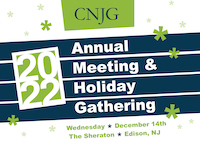 Wednesday, December 14, 11:00 am – 3:00 pm
Wednesday, December 14, 11:00 am – 3:00 pm
Luncheon & Keynote Presentation
Location: The Sheraton, Edison, 125 Raritan Center Parkway, Edison, NJ 08837
Friday, December 16, 11:00 – 12:15 pm
Virtual Workshop via Zoom
The Council of New Jersey Grantmakers thanks everyone who attended our 2022 Annual Meeting & Holiday Luncheon and the Virtual Workshop! We were delighted to see so many familiar faces, and meet many new staff and trustees of our members.
At the business meeting, members elected the new class of trustees, and heard reports about the state of the organization. After lunch and time to reconnect with each other, we heard from our keynote, Bridgit Antoinette Evans, who explained the narrative ocean in which philanthropy swims, and gave examples of how Pop Culture Collaborative is funding organizations to reframe their narratives in which they operate.
During the virtual workshop, members learned about the changemaker experience, how it affects the relationships between funders and their nonprofit partners and even grantseekers. Attendees were led through an exercise to create a journey map, and think through strategies how to examine the experiences that nonprofits have with their organizations.
CNJG members can view recordings and additional resources from the event on the resources tab, when logged in.
Philanthropic Collaboratives:
Driving Impact and Opportunity
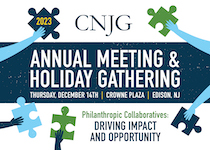 Thursday, December 14, 2023 - 9:00am to 3:00pm
Thursday, December 14, 2023 - 9:00am to 3:00pm
Luncheon, Keynote Presentation & Workshop
Location: Crowne Plaza Edison, 2055 Lincoln Highway, Edison, NJ 08817
The Council of New Jersey Grantmakers thanks everyone who attended our 2023 Annual Meeting & Holiday Luncheon and the Pre-Meeting Workshop that explored Philanthropic Collaboratives: Driving Impact and Opportunity. We were thrilled to reconnect with friends and colleagues and meet new members.
At the Business meeting, the membership elected the new class of Trustees. We also honored our outgoing Board Chair, Jeff Vega, for all the incredible work he accomplished during his term. After lunch and networking time, we listened attentively to Nidhi Sahni, Partner and Head of US Advisory Group, New York, Bridgespan, and Lucy Vandenberg, Executive Director of the Schumann Fund for New Jersey in conversation about the nuances and benefits of collaboration.
At the pre-meeting workshop, Tools for Funder Collaboration, presented by John Harper, Chirlie Felix, and Waheera Mardah of FSG, members were presented multiple models of collaboration and examples of collective impact followed by an opportunity to engage in dynamic discussion to further explore the concepts.
CNJG members can view the FSG PowerPoint and additional resources from the event on the resources tab, when logged in.
CNJG is pleased to re-convene the South Jersey Funders Consortium for a lunch meeting at La Scala Fire in Glassboro. Join your fellow South Jersey funders for lunch and a round robin discussion on what your organization is funding, and any new initiatives that you are working on.
When the Pascale Sykes Foundation sunset their operations, including gathering this group together on a periodic basis, the Consortium agreed to have CNJG take on the management and stewardship of the group.
Any funder located in or funding in the eight southern counties of New Jersey is welcome to attend (Burlington, Camden, Gloucester, Salem, Cumberland, Cape May, Atlantic, and Ocean). Although Camden city is located in south Jersey, and because we already have a Camden funders affinity group, the topics of discussion of the South Jersey Funders Consortium should focus on south Jersey, outside of the city of Camden.
Cost: Free for CNJG Members and Non Member Grantmakers
For 2023, CNJG will cover the cost of the South Jersey Funders Consortium lunch thanks to a grant from the Pascale Sykes Foundation.
Parking is available in a garage behind the restaurant and is free for two hours.

